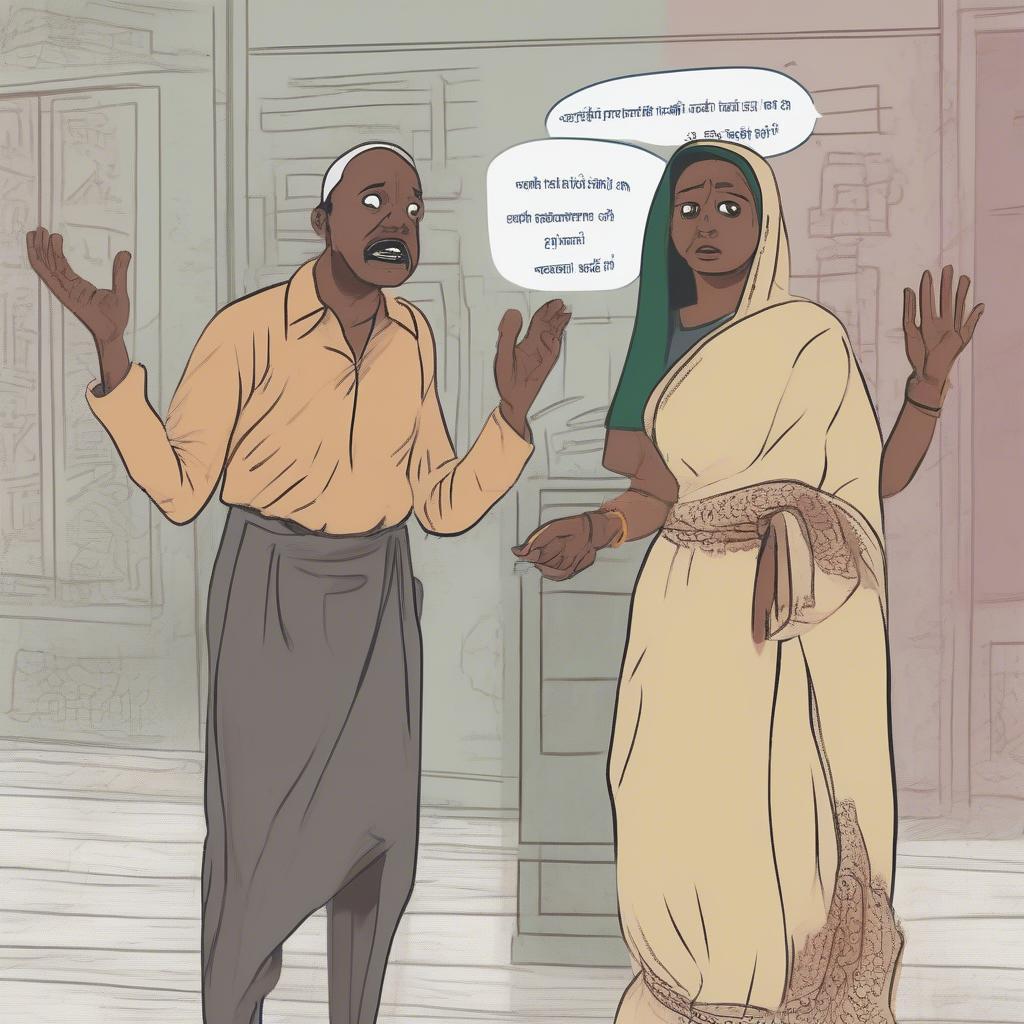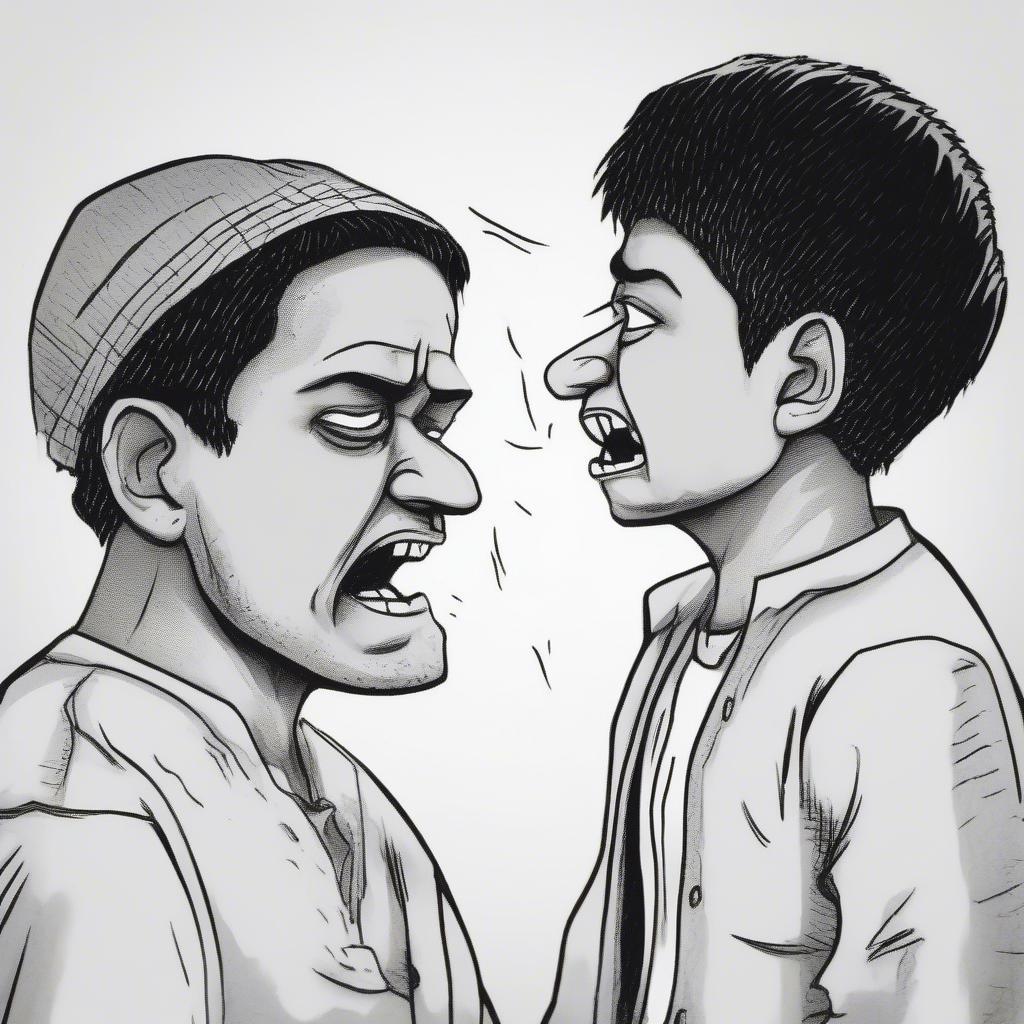“Majak Tha Bhai Majak,” a common phrase in Hindi, translates roughly to “It was just a joke, bro.” This seemingly simple statement carries a wealth of cultural and social implications, often used to diffuse tension, dismiss uncomfortable truths, or even excuse hurtful behavior. But when does playful banter cross the line? This article explores the nuances of “majak tha bhai majak” and how to navigate the complexities of humor in interpersonal relationships.
Navigating the Fine Line Between Humor and Offense: The “Majak Tha Bhai Majak” Conundrum
Humor is a powerful tool. It can build bridges, strengthen bonds, and even help us cope with difficult situations. However, humor can also be a double-edged sword, particularly when it comes to the phrase “majak tha bhai majak.” Understanding the context, the audience, and the cultural nuances is crucial to using humor effectively and avoiding unintended offense. What might be considered light-hearted teasing in one context could be perceived as deeply hurtful in another. The delicate balance lies in being mindful of the potential impact of our words and being willing to take responsibility when our jokes miss the mark.
 Misunderstanding in Communication with "Majak Tha Bhai Majak"
Misunderstanding in Communication with "Majak Tha Bhai Majak"
The Cultural Context of “Majak Tha Bhai Majak”
In many cultures, particularly in South Asia, the concept of “majak” extends beyond mere jokes. It encompasses playful teasing, light-hearted banter, and even sarcastic remarks. “Majak tha bhai majak” is often used as a social lubricant, a way to navigate potentially awkward situations, or to express affection through playful ribbing. However, the reliance on this phrase can also mask deeper issues, allowing individuals to avoid accountability for their words. It’s essential to recognize the cultural context while also being sensitive to the potential for this phrase to be misused.
When “Majak” Becomes More Than Just a Joke
While “majak tha bhai majak” can be a harmless way to diffuse tension, it can also be used to dismiss valid concerns or even excuse hurtful behavior. The phrase can become a shield, protecting the speaker from facing the consequences of their words. This is particularly true when the “joke” targets sensitive topics like race, religion, gender, or personal insecurities. In these instances, “majak tha bhai majak” becomes a way to invalidate the other person’s feelings and avoid genuine dialogue.
 Hurtful Joke Masked as "Majak"
Hurtful Joke Masked as "Majak"
Is it Really Just a Joke? Recognizing the Signs of Insincerity
How can you tell when “majak tha bhai majak” is a genuine attempt to lighten the mood versus a dismissive tactic? Pay attention to the speaker’s body language, tone of voice, and the overall context of the situation. If the “joke” is repeatedly targeting the same person or topic, or if it consistently leaves the other person feeling uncomfortable, it’s likely that the humor is not as harmless as it seems. Genuine apologies involve acknowledging the hurt caused and taking responsibility for one’s actions, rather than simply dismissing the issue with a casual “majak tha bhai majak.”
Communicating Effectively: Alternatives to “Majak Tha Bhai Majak”
If you find yourself frequently relying on “majak tha bhai majak,” consider exploring alternative ways to express yourself. Instead of dismissing someone’s feelings, try acknowledging their perspective and engaging in open communication. A simple “I understand why you might feel that way” or “I didn’t mean to offend you” can go a long way in building trust and fostering healthy relationships.
 Alternative Communication Strategies
Alternative Communication Strategies
Conclusion: Using “Majak Tha Bhai Majak” Responsibly
“Majak tha bhai majak” is a common phrase with complex implications. While it can be a tool for playful banter and diffusing tension, it’s crucial to be mindful of its potential to dismiss feelings and excuse hurtful behavior. By understanding the nuances of this phrase and prioritizing empathy and open communication, we can navigate the complexities of humor and build stronger, more respectful relationships. Remember, a genuine apology and a willingness to take responsibility for our words are far more effective than simply dismissing concerns with a casual “majak tha bhai majak.”
FAQ
-
What does “majak tha bhai majak” mean?
It means “It was just a joke, bro.” -
When is it appropriate to use “majak tha bhai majak”?
It’s appropriate when the humor is light-hearted and doesn’t cause offense. -
How can I tell if a joke is hurtful?
Pay attention to the other person’s reaction and consider the context. -
What are some alternatives to saying “majak tha bhai majak”?
Try apologizing sincerely and acknowledging the other person’s feelings. -
Why is it important to be mindful of humor?
Humor can be easily misinterpreted and can sometimes cause unintended hurt.
Common Scenarios and Questions
-
Scenario: Someone makes a joke about your weight and then says “majak tha bhai majak.”
-
Question: How should you respond if you feel hurt by the joke?
-
Scenario: You make a joke that someone takes offensively.
-
Question: How can you address the situation without dismissing their feelings?
Further Exploration
For more insights into communication and relationships, check out our other articles on [link to related article 1] and [link to related article 2].
Need Support? Contact Us!
For any assistance, please reach out to us via email at Contact@ViperCircle.com or visit us at G-5, लोअर परेल, सेनापति बापट मार्ग, मुंबई, महाराष्ट्र – 400013, भारत।. Our customer support team is available 24/7.